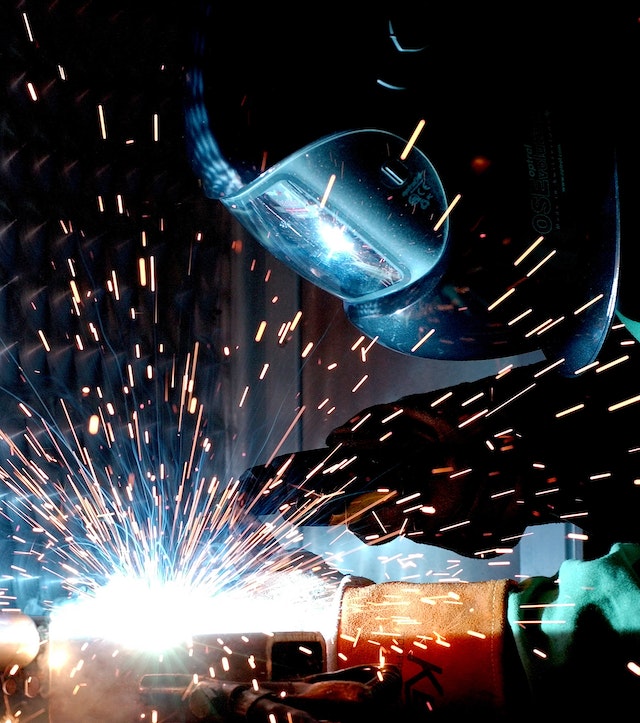The landscape of many different sectors has been drastically transformed due to globalization, and the manufacturing sector is no exception. Due to developments in technology, transportation, and communication, businesses have been more interested in expanding their activities outside national boundaries to take advantage of global markets and resources. This article examines the many different ways in which globalization is affecting the manufacturing industry. It investigates how globalization has changed the production, distribution, and consumption of goods by delving into the dynamics of supply chains, labor markets, and technical advancements.
Globalization’s Repercussions on Industry
Supply Chain Integration and Efficiency
The globalization of supply chains has been one of the most significant impacts on the industrial industry. Manufacturers can use more cost-effective manufacturing and a wider variety of resources by obtaining raw materials, components, and completed goods from various nations. This connectivity has improved supply chain efficiency, shortened lead times, and made just-in-time manufacturing tactics possible, letting businesses respond rapidly to fluctuations in consumer demand. Manufacturers are more vulnerable to interruptions, such as those caused by natural disasters or geopolitical crises, as supply networks grow more complicated and geographically scattered. Manufacturers can lessen their exposure to these threats by using robust supply chain management and distribution techniques.
Offshoring and Outsourcing: Shifting Manufacturing Bases
Offshoring, or outsourcing, manufacturing activities to nations with cheaper production costs is one way in which globalization has severely influenced the manufacturing sector. Corporations can boost their bottom lines by relocating their operations to countries with lower labor costs, fewer government restrictions, and more advantageous tax rules. While offshore has been a boon to the economies of certain areas, it has caused widespread unemployment and economic inequality in traditional industrial hubs. To avoid damaging their corporate social responsibility and public image, businesses must carefully negotiate the ethical problems arising offshore, such as working conditions and environmental damage. The globalization of the industrial sector has made it more important than ever for businesses to find a middle ground between cutting costs and acting ethically.
Labor Market Challenges and Opportunities
The manufacturing industry’s labor market has been significantly impacted by globalization in both positive and negative ways. Employment losses due to offshoring and the rising prevalence of automation have exacerbated unemployment and wage stagnation in certain areas. However, globalization has also opened up new job possibilities, especially in developing nations that have become industrial centers, providing a pool of qualified new employees and exciting new markets. Companies in the manufacturing sector need highly trained and flexible staff if they are to compete in today’s global market. Firms must place a premium on employee development and reskilling initiatives to be competitive and take advantage of globalization’s revolutionary potential.
Technology and Industry 4.0 Advancements
Industry 4.0, ushered in by the convergence of globalization and technology, is defined by the inseparable linking of automation, artificial intelligence, the Internet of Things (IoT), and data analytics in production. Smart factories have emerged due to these revolutionary technical developments, boasting increased efficiency, agility, and responsiveness to changing market needs. Manufacturers that enthusiastically adopt these advances gain a huge competitive edge by increasing productivity and meeting the unique demands of their customers via the creation of bespoke goods. This transformation is evident in various manufacturing processes, including CNC milling, where digital connection and intelligent automation have significantly improved precision, speed, and customization capabilities. Industry 4.0 marks a watershed moment in the evolution of the manufacturing sector, empowering computer numerically controlled milling and other advanced manufacturing techniques to propel the industry into a new era of innovation and competitiveness.
Intellectual Property Protection and Counterfeiting Challenges
Intellectual property (IP) protection concerns have grown due to globalization and the free production movement across borders. Businesses worldwide risk having their important discoveries, designs, and confidential information copied or used without their permission. To overcome this obstacle, businesses must learn to navigate murky legal waters and adopt stringent intellectual property protection tactics. Improving international IP legislation and enforcement procedures is crucial for addressing these issues. To address the rising problem of counterfeit goods in the global market, international cooperation is necessary to maintain free and open markets, encourage innovation, and protect the legal rights of innovators and producers.
Conclusion
Globalization has transformed production, distribution, and consumption. Global supply chains have increased efficiency and cost-effectiveness and exposed enterprises to interruptions. Offshoring and outsourcing have reshaped manufacturing, producing labor market issues and possibilities. Technology and Industry 4.0 have helped firms boost productivity and responsiveness. Globalization has brought ethical issues, including work conditions and IP protection. Policymakers and entrepreneurs must address globalization’s problems and opportunities for industrial development and innovation. Manufacturers can flourish in the international market and improve society by using technology, hiring qualified workers, and practicing ethical business.

















